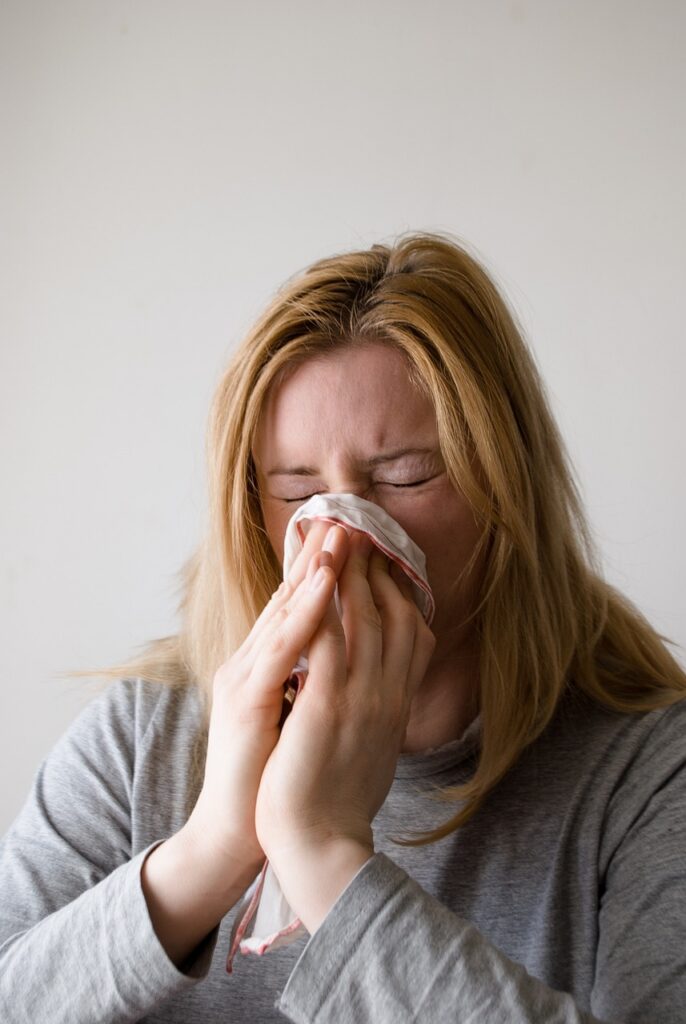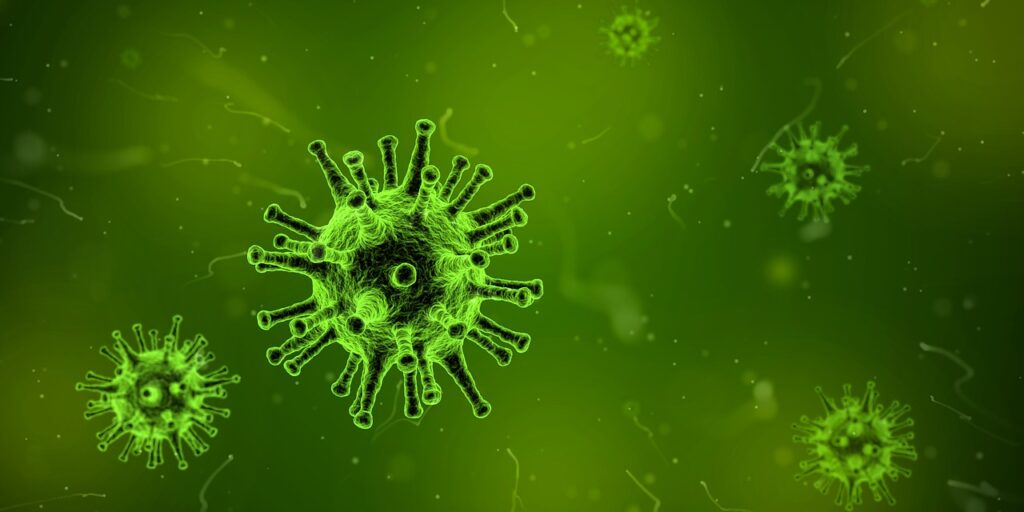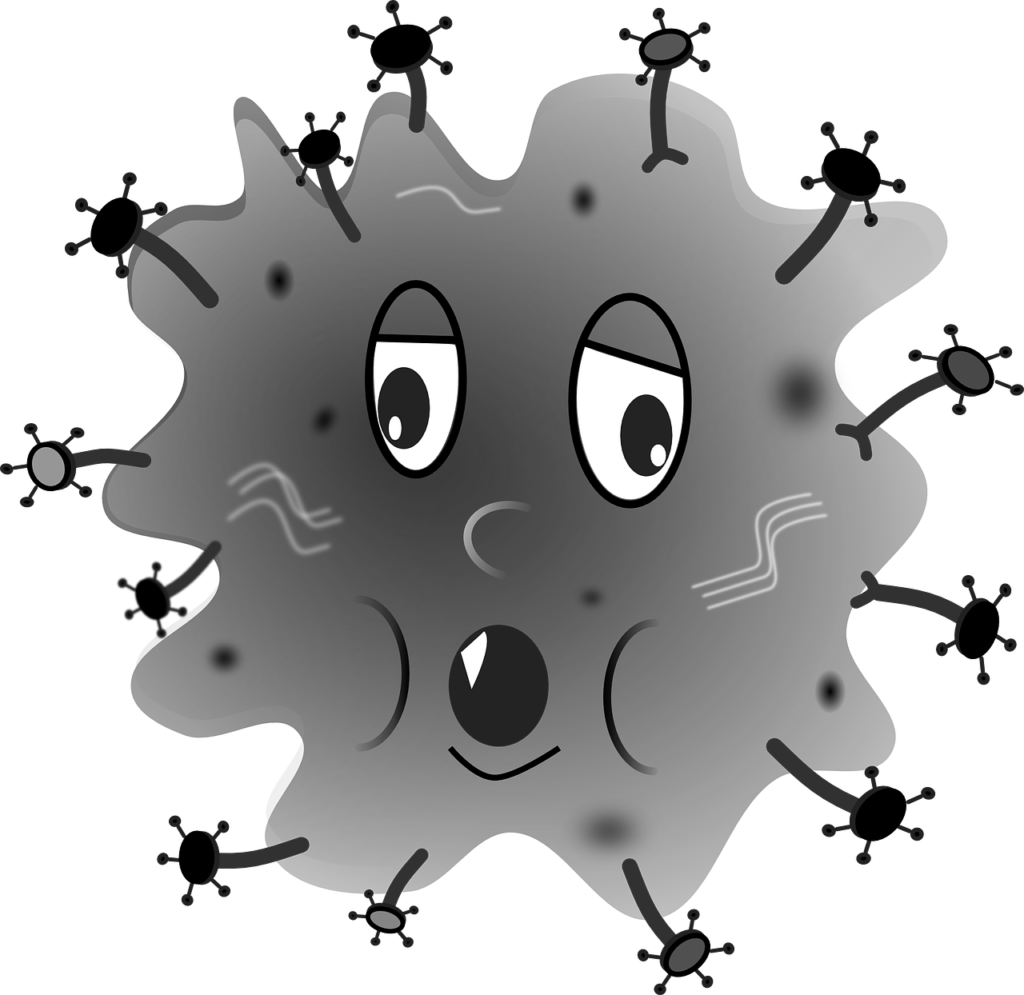Mumps, a contagious viral infection that primarily affects the salivary glands, is a condition that has been a cause of concern for many people around the world. While mumps can often be mild, it has the potential to cause complications if left untreated. In this beginner’s guide, we will delve into the various aspects of mumps, including its definition, pathology, types, stages, causes, risk factors, signs and symptoms, investigations, and differential diagnosis. We will also explore the role of homeopathy in managing and preventing mumps, providing you with valuable insights on this alternative approach to healthcare.

Meaning of Mumps
Mumps, scientifically known as “epidemic parotitis,” is a highly contagious viral infection that primarily affects the salivary glands, specifically the parotid glands, which are located on the sides of the face, just below and in front of the ears. The mumps virus belongs to the Rubulavirus genus and is primarily spread through respiratory droplets when an infected person coughs or sneezes.
Mumps Pathology
The mumps virus invades the body through the respiratory tract and spreads through the bloodstream to various tissues, including the salivary glands. Once in the parotid glands, the virus causes inflammation, resulting in the characteristic swelling of the cheeks and jawline.
Types and Stages of Mumps
Mumps Types
Mumps typically presents as a single type of viral infection. There are no distinct strains or variations of the mumps virus, unlike some other viruses such as influenza. This means that the same mumps virus causes the condition in all infected individuals.
Mumps Stages
Mumps generally progresses through the following stages:
1. Incubation Stage: This is the period from initial infection to the appearance of symptoms, which usually lasts around 12-25 days.
2. Prodromal Stage: During this stage, individuals may experience non-specific symptoms like fever, headache, muscle aches, and loss of appetite. This stage typically lasts for 1-2 days.
3. Parotitis Stage: The hallmark of mumps, this stage involves painful swelling of the parotid glands. It can affect one or both sides of the face and lasts for about a week.
4. Resolution Stage: After the parotitis stage, the swelling gradually subsides, and the individual recovers over a period of 10-12 days.
Mumps Cause and Risk Factors
Mumps Cause
Mumps is caused by the mumps virus, which is primarily transmitted from person to person through respiratory droplets when an infected individual coughs, sneezes, or talks. It can also spread through direct contact with infected saliva or contaminated objects and surfaces.
Mumps Risk Factors
While anyone can contract mumps, certain factors can increase the risk of infection:
1. Unvaccinated Individuals: People who have not received the measles, mumps, and rubella (MMR) vaccine are at a higher risk of contracting mumps.
2. Close Contact: Being in close proximity to an infected person, such as living in a dormitory or household with someone who has mumps, increases the risk of transmission.
3. Age: Mumps is more common in children and young adults, but it can affect individuals of all ages.
4. Travel: Traveling to areas with mumps outbreaks can increase the risk of exposure to the virus.
Signs and Symptoms of Mumps
Mumps can manifest with various signs and symptoms, which may include:
1. Swelling of the Parotid Glands: The most recognizable symptom of mumps is the swelling of the parotid glands, causing puffiness on one or both sides of the face.
2. Pain and Tenderness: The swollen glands are often painful and tender to the touch.
3. Fever: A mild to moderate fever is common in mumps cases.
4. Headache: Individuals with mumps may experience headaches, which can be attributed to the fever and inflammation.
5. Muscle Aches: Generalized muscle aches and fatigue are common symptoms during the prodromal stage.
6. Loss of Appetite: Reduced appetite is often noted, as eating and swallowing may be painful due to the swollen glands.
7. Difficulty Talking and Swallowing: Swelling can make it difficult to speak and swallow, especially if both parotid glands are affected.
It’s important to note that some individuals infected with the mumps virus may remain asymptomatic or have only mild symptoms.
Investigations and Differential Diagnosis
Mumps Investigations
To confirm a mumps diagnosis, healthcare providers may use various investigative methods, including:
1. Clinical Assessment: Doctors will examine the characteristic swelling of the parotid glands and inquire about the patient’s medical history.
2. Laboratory Tests: A blood test can detect the presence of mumps-specific antibodies, while a throat swab or saliva test may identify the virus itself.
3. Imaging: In some cases, ultrasound or MRI scans may be used to visualize the swollen parotid glands.
Mumps Differential Diagnosis
Several conditions share similarities with mumps and can be differentially diagnosed. These include:
1. Parotitis of Other Etiologies: Bacterial parotitis can cause symptoms similar to mumps but requires different treatment. Viral infections like influenza can also lead to swelling of the salivary glands.
2. Orchitis and Oophoritis: In some cases, mumps can lead to inflammation of the testes (orchitis) in males and the ovaries (oophoritis) in females, which may require a separate diagnosis and management.
3. Salivary Stones: Salivary stones, also known as sialolithiasis, can cause blockages in the salivary ducts and lead to symptoms resembling mumps.
4. TMJ Disorders: Temporomandibular joint (TMJ) disorders can cause jaw pain and swelling, often leading to confusion with mumps.
A proper diagnosis is crucial to determine the most appropriate treatment and management plan for the individual.
Mumps General Management
Management of mumps primarily focuses on relieving symptoms and preventing complications. Here are some general management strategies:
1. Isolation: Infected individuals should be isolated from others to prevent further transmission of the virus.
2. Rest and Hydration: Getting plenty of rest and staying well-hydrated is essential to aid the body in fighting the infection.
3. Pain Relief: Over-the-counter pain relievers like acetaminophen or ibuprofen can help manage pain and fever.
4. Cold Compresses: Applying cold compresses to the swollen glands can provide relief from pain and reduce swelling.
5. Soft Diet: Eating soft, non-acidic foods can make swallowing easier and reduce discomfort.
6. Complication Monitoring: Healthcare providers may closely monitor for potential complications, such as orchitis or meningitis, and provide treatment if necessary.
Mumps General Prevention
Preventing mumps is crucial, and vaccination is the most effective way to achieve this. The measles, mumps, and rubella (MMR) vaccine is highly effective in preventing mumps. It is typically administered in two doses, the first at around 12-15 months of age and the second between 4-6 years.
Here are some key points on mumps prevention:
1. Vaccination: Ensure that you and your children are up-to-date with the MMR vaccine.
2. Herd Immunity: Widespread vaccination helps create herd immunity, which protects those who cannot be vaccinated, such as individuals with weakened immune systems.
3. Good Hygiene: Encourage good hygiene practices, including frequent handwashing, to reduce the risk of viral transmission.
4. Isolation: If someone in your household is infected with mumps, take precautions to isolate them and practice good hygiene to prevent further spread.
The Role of Homeopathy in Treating Mumps
While vaccination remains the primary method of preventing mumps, some individuals may choose alternative or complementary therapies, such as homeopathy, to manage the condition. It’s essential to approach this topic with an open mind and consider the potential benefits and limitations of homeopathy in mumps management.
What is Homeopathy?
Homeopathy is a complementary and alternative medicine system that believes in treating “like with like.” Homeopathic remedies are highly diluted substances that aim to stimulate the body’s natural healing mechanisms. Homeopaths select remedies based on the individual’s unique symptoms, overall health, and the principle of treating the whole person, not just the disease.
Homeopathy for Mumps
In the case of mumps, a homeopath would consider the individual’s specific symptoms and overall health. Homeopathic remedies are typically chosen to address the person’s condition rather than targeting the virus directly. Some common homeopathic remedies that may be considered in mumps cases include:
Mercurius solubilis: Used for mumps with right-sided parotid gland swelling, especially when pain worsens from touch and chewing; recommended potencies: 2C – 30C, 3-5 pills, 3 times a day.
Belladonna: Suitable for mumps with parotid gland swelling, fever, and stitching pain; typically worsened by right-sided symptoms, touch, lying down, or motion; recommended potencies: 30C 200C, 1M, 3-5 pills, 3 times a day.
Pulsatilla nigricans: Indicated for mumps with parotid gland swelling and possible spread of infection to mammary gland, ovary, or testes; recommended potencies: 3C – 30C, 3-5 pills, 3 times a day.
Apis mellifica: Considered when mumps infection spreads to the brain, with a preference for warmth and aversion to cold; available in tincture or 30C potency; dosage: 10 drops or 5 drops in half a glass of water, 3 times a day.
Chamomilla: Effective for mumps with swollen parotid glands, irritability, and sensitivity to heat, anger, open air, wind, and night; recommended potencies: 3C – 30C, 3-5 pills, 3 times a day.
Lachesis: When the affected glands appear purplish or bluish and are extremely sensitive to touch, Lachesis may be indicated.
It’s important to note that homeopathic remedies are highly individualized, and the choice of remedy may vary from person to person. Additionally, the effectiveness of homeopathy in treating mumps is a subject of ongoing debate and research.

In Conclusion
Mumps, a contagious viral infection, can cause significant discomfort and complications if not properly managed. Understanding the definition, pathology, types, stages, causes, risk factors, signs and symptoms, investigations, and differential diagnosis of mumps is essential for early detection and effective treatment. Vaccination with the MMR vaccine remains the most reliable method of prevention.
For those who choose to explore alternative or complementary therapies, such as homeopathy, it’s crucial to do so in conjunction with conventional medical care. Homeopathy offers a unique approach to healing that considers the individual’s overall health and specific symptoms. However, the effectiveness of homeopathic remedies in treating mumps is a topic of ongoing research and debate.
As the medical field continues to evolve, staying informed and making well-informed healthcare decisions is the key to promoting well-being and preventing the spread of contagious diseases like mumps.
Reach out to us for a Consultation
For any queries, reach out to us at contact@homeopathic.ai
This blog is for information purposes. It’s crucial to note that while homeopathy is a centuries-old practice with many adherents worldwide, always consult a qualified homeopath or medical professional before initiating any treatment.





